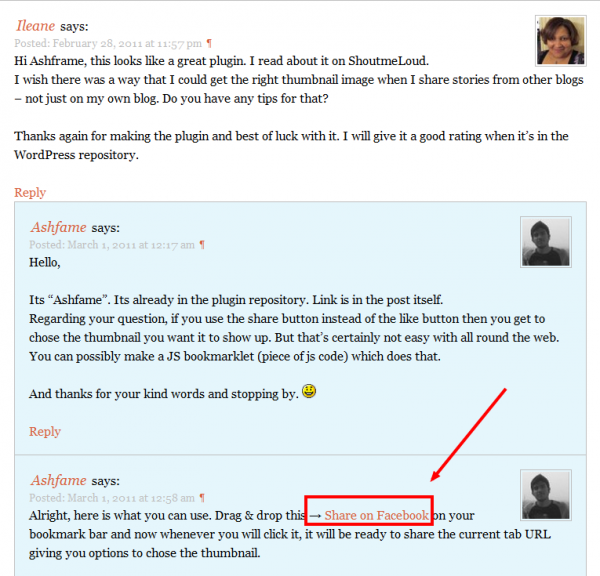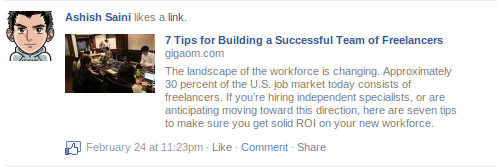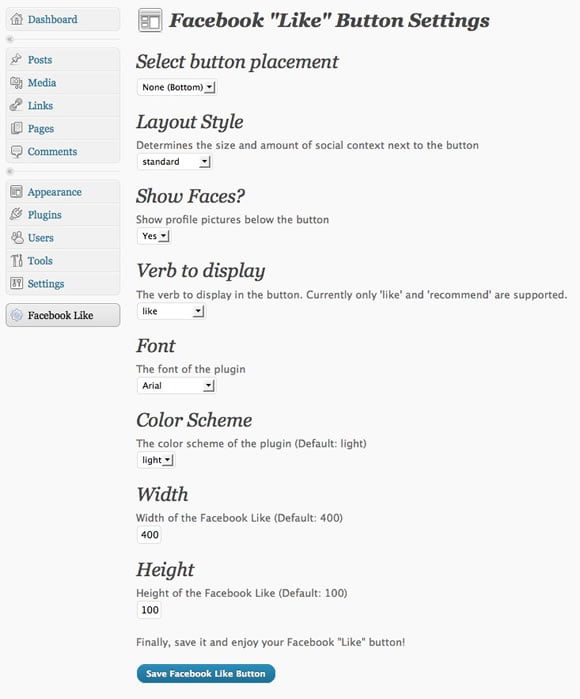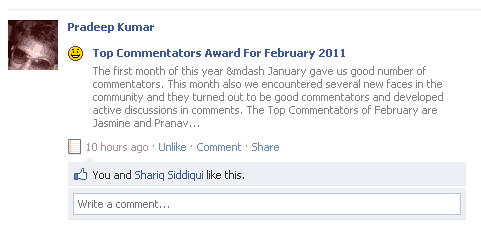Digg started out as an experiment in November 2004 by Kevin Rose, Owen Byrne, Ron Gorodetzky, and Jay Adelson. The original design was free of advertisements, and was designed by Dan Ries. As Digg became more popular, Google AdSense was added to the website. In July 2005, the site was updated to Version 2.0. The new version featured a friends list, the ability to "digg" a story without being redirected to a success page, and a new interface designed by web design company silverorange. The site developers have stated that in future versions a more minimalist design will likely be employed. On Monday June 26, 2006 version 3 of Digg was released with specific categories for Technology, Science, World & Business, Videos, Entertainment and Gaming as well as a View All section where all categories are merged. Digg has grown large enough that submissions sometimes create a sudden increase of traffic to the "dugg" website. This is referred to by some Digg users as the "Digg effect" and by some others as the site being "dugg to death." However, in many cases stories are linked simultaneously on several popular bookmarking sites. In such cases, the impact of the "digg effect" is difficult to isolate and assess. On August 27, 2007, Digg altered its main interface, mostly in the profile area. The domain "digg.com" attracted at least 236 million visitors annually by 2008 according to a Compete.com survey.
Digg CEO Jay Adelson explained at the 2010 "Bigg Digg Shindigg," which is part of the South by Southwest Interactive Conference, that Digg is getting a major overhaul and redesign. In an interview with Wired magazine, Adelson explained that "Every single thing has changed" and that "the entire website has been rewritten." Adelson explains that the new Digg will essentially eliminate the duplication problem. It will also help prevent so called 'power users' from dominating the site with their submissions. The new Digg will also offer users a personalized homepage, based on their diggs, that is tailored to their specific interests. The commenting system will be updated to "help fight bad behavior like trolling or group-burying." The entire look of the site will also change. Adelson summed up the new Digg by saying, "We've got a new backend, a new infrastructure layer, a new services layer, new machines — everything." John Quinn wrote in a Digg blog post that the company was going to stop using MySQL and begin using Cassandra, a distributed database system.
On April 5, 2010, Kevin Rose announced that he would be assuming the position of CEO as Jay Adelson had stepped down. Although, some time later he has disclosed that he is actively seeking a replacement CEO as the role takes up too much of his time that he would rather spend doing other things, such as angel investing.
On August 25, 2010, Digg released v4. The site experienced a number of bugs and glitches that has resulted in a backlash from Digg users in the form of verbal opposition and, initially, heavy posting of articles from Reddit - a competitor of Digg's. Digg's business development director Matt Van Horn left Digg after the official update of version 4.
On September 1, 2010, Matt Williams took over as CEO, ending Rose's troubled tenure as interim chief executive.
Several reports have come forward claiming Digg has been trying to sell itself to a larger company since early 2006. While Adelson claims that Digg will meet with any potential buyers, he denies that they will actively begin talks for a sale. The most recent sale talks were with Google in July 2008 for approximately $200 million. On July 25, during the due diligence part of the potential sale, Google informed Digg that they were not interested in the purchase. As a result of Google's decision, Digg entered into a third round of funding, receiving $28.7 million from investors such as Highland Capital Partners. With this funding, the company plans to move from their current offices to accommodate a bigger staff base. On December 2, 2008, BusinessWeek reported "Digg Chief Executive Officer Jay Adelson says the popular news aggregation Web site is no longer for sale, and the focus of the company is to build an independent business that reaches profitability as quickly as possible. That means the four-year-old startup will dial back some of its expansion plans, instead prioritizing projects that generate revenue and profit." On December 18, 2008, BusinessWeek analyzed Digg's financial statements. They reported that Digg lost $4 million on $6.4 million of revenue in the first three quarters of 2008.
In May 2009, Digg launched a new feature integrating Facebook Connect with Digg. The Digg integration with Facebook connect allows users of Digg and Facebook to connect their accounts. When a Facebook account is connected to a Digg account, Digg articles can then be shared on the user's Facebook page. Facebook Connect also allows Facebook users to log into Digg with their Facebook account, thus bypassing the normally required Digg registration.
Digg Dialogg allows Digg users to submit questions to a preselected famous individual who agrees to do an interview with a reporter chosen by Digg. On April 2, 2009, Digg released the Digg Bar, which provides a toolbar above the top of a site allowing the user to produce shortened urls, or access digg comments and analytics without leaving the page. On April 5, 2010, Kevin Rose announced on the official Digg blog that the controversial DiggBar would be eliminated with the implementation of the 4th version of the website. This was Rose's first major announcement since succeeding Jay Adelson as CEO. On April 19, 2007, Digg opened their API (Application Programing Interface) to the public. This allowed software developers to write tools and applications based on queries of Digg's public data, dating back to 2004. Since then, many blogs have sought to keep up with all of the ongoing Digg API projects.
Digg CEO Jay Adelson explained at the 2010 "Bigg Digg Shindigg," which is part of the South by Southwest Interactive Conference, that Digg is getting a major overhaul and redesign. In an interview with Wired magazine, Adelson explained that "Every single thing has changed" and that "the entire website has been rewritten." Adelson explains that the new Digg will essentially eliminate the duplication problem. It will also help prevent so called 'power users' from dominating the site with their submissions. The new Digg will also offer users a personalized homepage, based on their diggs, that is tailored to their specific interests. The commenting system will be updated to "help fight bad behavior like trolling or group-burying." The entire look of the site will also change. Adelson summed up the new Digg by saying, "We've got a new backend, a new infrastructure layer, a new services layer, new machines — everything." John Quinn wrote in a Digg blog post that the company was going to stop using MySQL and begin using Cassandra, a distributed database system.
On April 5, 2010, Kevin Rose announced that he would be assuming the position of CEO as Jay Adelson had stepped down. Although, some time later he has disclosed that he is actively seeking a replacement CEO as the role takes up too much of his time that he would rather spend doing other things, such as angel investing.
On August 25, 2010, Digg released v4. The site experienced a number of bugs and glitches that has resulted in a backlash from Digg users in the form of verbal opposition and, initially, heavy posting of articles from Reddit - a competitor of Digg's. Digg's business development director Matt Van Horn left Digg after the official update of version 4.
 Installing the Facebook Like |  Facebook Like Thumbnail is a |  The Facebook Like Thumbnail |  to add the Facebook Like |  Facebook Social Media |
 WordPress plugin Facebook Like |  facebook-new-like |  using the facebook like(Or |  How to add Facebook Like |  Facebook Thumbnails: Using A |
In May 2009, Digg launched a new feature integrating Facebook Connect with Digg. The Digg integration with Facebook connect allows users of Digg and Facebook to connect their accounts. When a Facebook account is connected to a Digg account, Digg articles can then be shared on the user's Facebook page. Facebook Connect also allows Facebook users to log into Digg with their Facebook account, thus bypassing the normally required Digg registration.
 Facebook+like+thumbnail For blogger real success story for wordpress |  Dupree Promotions Thumbnail |  Facebook Like Button Preview |  It is a must-do for WordPress |  Facebook like free wordpress |
 WordPress Facebook Like Plugin |  How To Create A Facebook Like |  Built-in Google +1 , Facebook | Facebook Like and Tweet |  Thumbnails on the Facebook |
No comments:
Post a Comment